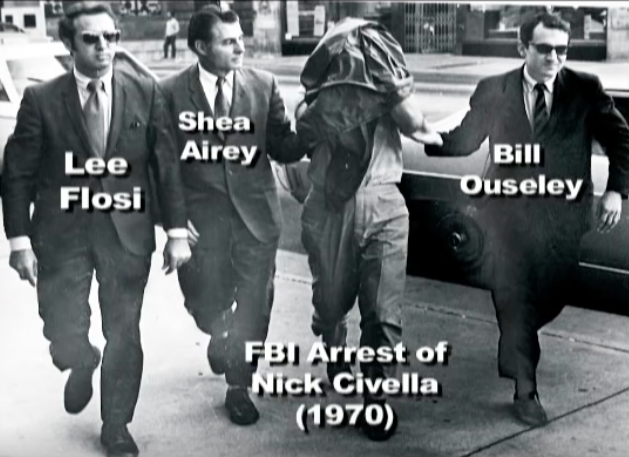The Story of the 1970 Super Bowl: Gambling, Wiretaps, and the Downfall of the KC Mob
The Chiefs and Vikings dueled in Super Bowl IV in January 1970.
The Kansas City Chiefs entered Super Bowl IV as 11-point underdogs against the Minnesota Vikings, but their unexpected victory also played a key role in exposing the Kansas City Mafia’s illegal gambling operations. But beyond football, the game also set in motion the beginning of the end for the Kansas City Mafia.
A wiretap installed at a Mafia-run gambling headquarters captured conversations that would ultimately help federal agents dismantle the city’s most powerful criminal enterprise.
For decades, the Kansas City Mafia, led by Nick Civella, controlled illegal gambling, loan sharking, and other criminal operations throughout the city. One of their most lucrative enterprises was bookmaking, where they made money not by taking risks on bets but by collecting a 10% fee, or "vig," from losing wagers. Their goal was to ensure an even balance of bets so that they profited no matter the outcome.
But when the hometown Chiefs made it to Super Bowl IV, Kansas Citians overwhelmingly bet on their team, creating a massive imbalance in the local betting books. Civella and his associates were desperate to find enough gamblers willing to bet on the Vikings to offset their risk. Unbeknownst to them, the FBI had wiretapped the phone at their headquarters—known as "The Trap"—at 5th and Troost, listening in as the Mafia scrambled to fix their odds.
The Wiretap That Caught the Boss
Former location of The Trap, located in the Columbus Park neighborhood at 5th & Troost.
With bets heavily lopsided in the Chiefs’ favor, Mafia soldier Frank Tousa was caught on tape telling Civella that they couldn’t cover $47,360 in bets—equivalent to over $300,000 today. Frustrated, Civella himself got on the phone and was recorded asking what was being done to address the situation.
It was a rare mistake. As the head of the Kansas City Mafia, Civella usually kept a safe distance from day-to-day operations, making it difficult for law enforcement to link him to criminal activity. But here, caught in the moment, he incriminated himself on an FBI wiretap.
At the time, wiretaps were a relatively new investigative tool. This one, installed under a federal court order, provided the first direct evidence tying Civella to illegal gambling. He had long been suspected of running the city's rackets, but now the FBI had him on tape discussing criminal business firsthand.
The Immediate Fallout
Nick Civella led the KC Mafia for several decades. Courtesy Nevada State Archives.
Following the Super Bowl, FBI agents used the recordings to begin building a case against Civella and his associates. While it took several more years for the legal process to unfold, the Super Bowl IV wiretap played a crucial role in Civella’s 1977 conviction for illegal gambling. He was sentenced to prison, though he secured an early medical release after being diagnosed with cancer.
The case also helped set the stage for further federal investigations into Kansas City’s Mafia operations, including a massive casino-skimming operation in Las Vegas that was later dramatized in the film Casino. In the early 1980s, wiretaps and surveillance helped the FBI convict Civella’s brother Carl, mob lieutenant Carl DeLuna, and others for skimming money from the Tropicana and Stardust casinos. These cases, along with internal mob conflicts and high-profile violence in the River Quay district, eventually dismantled the Kansas City Mafia’s power structure.
Len Dawson’s Brief Connection
In an unrelated but widely publicized incident, Chiefs quarterback Len Dawson’s phone number was allegedly found in the possession of a bookie. This led to speculation about his involvement in gambling, but there was no evidence of wrongdoing, and Dawson was quickly cleared. Despite the controversy, he went on to lead the Chiefs to their first Super Bowl victory, solidifying his legacy in Kansas City.
The Beginning of the End
Nobody realized it at the time, but Super Bowl IV was more than a football victory—it was the first major break in a decades-long effort to bring down organized crime in Kansas City. The wiretap at The Trap provided law enforcement with direct evidence of illegal gambling operations and exposed Civella’s personal involvement. While the Mafia didn’t collapse overnight, the case proved that they were vulnerable, emboldening federal agents to pursue larger investigations that would eventually dismantle their operations.



